This post is an aggregation of famous thoughts by the brightest minds in trading and investment industries. Most of them come from decades of trial and error and many thousands of hours of work, giving you the ability to shortcut your learning curve.
Based on my own experience, I always need to learn the lessons the hard way before I start to change my behaviour. If that’s the case with you, then I at least hope to bring some value through entertainment.
Please enjoy:
TRADERS
Paul Tudor Jones
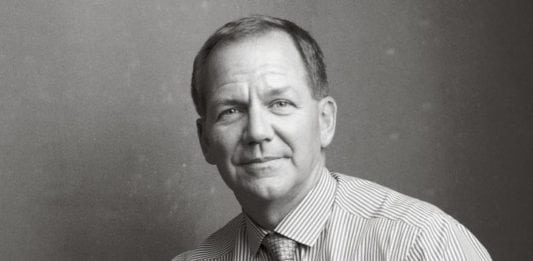
″Don’t be a hero. Don’t have an ego. Always question yourself and your ability. Don’t ever feel that you are very good. The second you do, you are dead.
I always believe that prices move first and fundamentals come second
You adapt, evolve, compete or die.
Sometimes failure is merely chasing you off the wrong road and onto the right one
The most important rule is to play great defense, not great offense. Everyday I assume every position I have is wrong. I know where my stop risk points are going to be. I do that so I can define my maximum drawdown. Hopefully, I spend the rest of the day enjoying positions that are going in my direction. If they are going against me, then I have a game plan for getting out.
You can achieve great economic gains by solving social problems
Failure was a key element to my life’s journey.
Mr. Stupid, why risk everything on one trade? Why not make your life a pursuit of happiness rather than pain?
It is not that we had any unfair knowledge that other people didn’t have, it is just that we did our homework. People just don’t want to believe that anyone can break away from the crowd and rise above mediocrity.
As I’ve told my three daughters, all of whom I’ve at one time encouraged to go into macro trading, any man or woman can do anything to which they set their heart and mind
Jesse Livermore
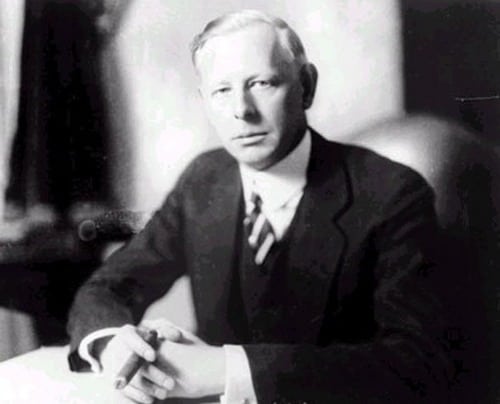
All through time, people have basically acted and reacted the same way in the market as a result of: greed, fear, ignorance, and hope. That is why the numerical formations and patterns recur on a constant basis.
Of all hoodoos in Wall Street I think the resolve to induce the stock market to act as a fairy godmother is the busiest and most persistent.
Remember this: When you are doing nothing, those speculators who feel they must trade day in and day out, are laying the foundation for your next venture. You will reap benefits from their mistakes
After spending many years in Wall Street and after making and losing millions of dollars I want to tell you this: It never was my thinking that made the big money for me. It always was my sitting.
Emotional control is the most essential factor in playing the market. Never lose control of your emotions when the market moves against you. Don’t get too confident over your wins or too despondent over your losses.
The game of speculation is the most uniformly fascinating game in the world. But it is not a game for the stupid, the mentally lazy, the person of inferior emotional balance, or the get-rich-quick adventurer. They will die poor.
The only thing to do when a person is wrong is to be right, by ceasing to be wrong. Cut your losses quickly, without hesitation. Don’t waste time. When a stock moves below a mental-stop, sell it immediately.
The desire for constant action irrespective of underlying conditions is responsible for many losses in Wall Street even among the professionals, who feel that they must take home some money everyday, as though they were working for regular wages.
I have always found it profitable to study my mistakes.
Being wrong and not taking the loss – that is what does the damage to the pocket book and to the soul.
Martin Schwartz

Trading is a psychological game. Most people think they are playing against the market, but the market doesn’t care. You are really playing against yourself.
I always take my losses quickly. That is probably the key to my success. You can always put the trade back on, but if you go flat, you see things differently. The pressure you feel when you are in a position that is not working puts you in a catatonic state.
Learn to take losses. The most important thing in making money is not letting your losses get out of hand. Also, don’t increase your position size until you have doubled or tripled your capital. Most people make the mistake of increasing their bets as soon as they start making money. That is a quick way to get wiped out.
Before taking a position, always know the amount you are willing to lose.
I’ve said it before, and I’m going to say it again, because it cannot be overemphasized: the most important change in my trading career occurred when I learned to divorce my ego from the trade. Trading is a Psychological Game. Most people think that they’re playing against the market, but the market doesn’t care. You’re really playing against yourself. You have to stop trying to will things to happen in order to prove that you’re right. Listen only to what the market is telling you now. Forget what you thought it was telling you five minutes ago. The sole objective of trading is not to prove you’re right, but to hear the cash register ring.
My biggest losses have always followed my largest profits.
Most people would rather lose money than admit they’re wrong. What is the ultimate rationalization of a trader in a losing position? “I’ll get out when I’m even.” Why is getting out even so important? Because it protects the ego. I became a winning trader when I was able to say, “To hell with my ego, making money is more important.
Bottom fishing is one of the most expensive forms of gambling.
I always check my charts and the moving averages prior to taking a position.
Is the price above or below the moving average? That works better than any tool I have. I try not to go against the moving averages; it is self-destructive.
After a successful period, take a day off as a reward.
Ed Seykota

“Trading requires skill at reading the markets and at managing your own anxieties.”
The elements of good trading are: (1) cutting losses, (2) cutting losses, and (3) cutting losses. If you can follow these three rules, you may have a chance.
Systems don’t need to be changed. The trick is for a trader to develop a system with which he is compatible
There are old traders and there are bold traders, but there are very few old, bold traders.
A losing trader can do little to transform himself into a winning trader. A losing trader is not going to want to transform himself. That’s the kind of thing winning traders do.
If you can’t take a small loss, sooner or later you will take the mother of all losses.
Risk no more that you can afford to lose, and also risk enough so that a win is meaningful.
Dramatic and emotional trading experiences tend to be negative. Pride is a great banana peel, as are hope, fear, and greed. My biggest slip-ups occurred shortly after I got emotionally involved with positions.
I don’t judge success, I celebrate it. I think success has to do with finding and following one’s calling regardless of financial gain.
The positive intention of fear is risk control
Alexander Elder
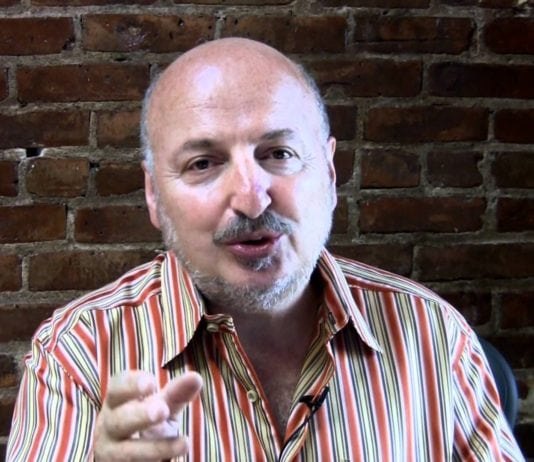
The goal of a successful trader is to make the best trades. Money is secondary.
When a beginner wins he feels brilliant and invincible Then he takes wild risk and loses everything
Markets are actually set up so that most traders must lose money
To win in the markets, we need to master three essential components of trading: sound psychology, a logical trading system, and an effective risk management plan.
So far, the only people who’ve made money from trading systems are their sellers.
To help ensure success, practice defensive money management. A good trader watches his capital as carefully as a professional scuba diver watches his air supply.
An astute trader aims to enter the market during quiet times and take profits during wild times.
Being simply “better than average” is not good enough. You have to be head and shoulders above the crowd to win a minus-sum game.
Why do most traders lose and wash out of the markets? Emotional and mindless trading are big reasons, but there is another. Markets are actually set up so that most traders must lose money. The trading industry slowly kills traders with commissions and slippage.
It is hard enough to know what the market is going to do; if you don’t know what you are going to do, the game is lost.
INVESTORS
Warren Buffett
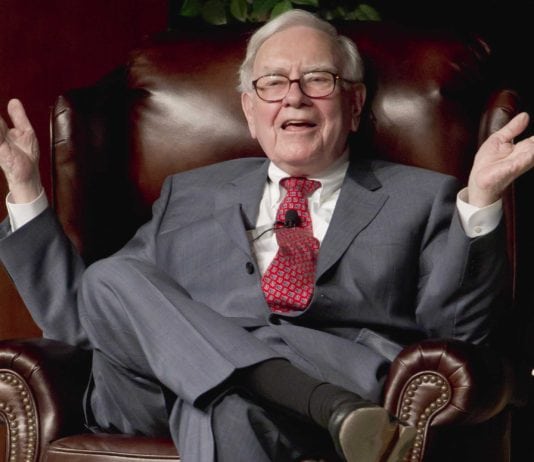
“Most people get interested in stocks when everyone else is. The time to get interested is when no one else is. You can’t buy what is popular and do well.”
Cash combined with courage in a time of crisis is priceless.
If you have more than 120 or 130 I.Q. points, you can afford to give the rest away. You don’t need extraordinary intelligence to succeed as an investor.
Unless you can watch your stock holding decline by 50% without becoming panic-stricken, you should not be in the stock market.
Wide diversification is only required when investors do not understand what they are doing.
Risk comes from not knowing what you’re doing.
Price is what you pay. Value is what you get.
Only buy something that you’d be perfectly happy to hold if the market shut down for 10 years.
When we own portions of outstanding businesses with outstanding managements, our favorite holding period is forever.
Opportunities come infrequently. When it rains gold, put out the bucket, not the thimble
Joel Greenblatt
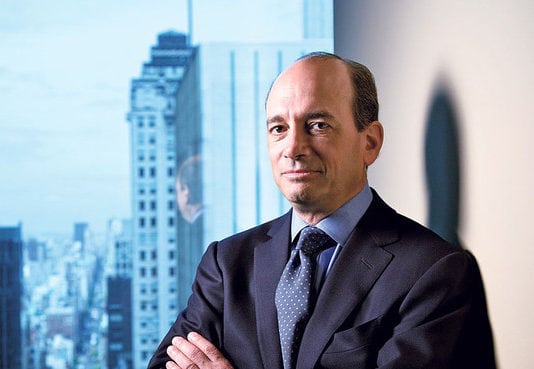
Prices fluctuate more than values—so therein lies opportunity
To be a successful investor over the long-term, you must also pretty much enjoy the journey.
Companies that are too small for professionals to buy and that are not large enough to generate sufficient commission revenue to justify analyst coverage are more likely to be ignored or misunderstood.
The important thing is to stick to the few situations that you have time to research and understand.
Many studies over the years have confirmed that value-oriented strategies beat the market over longer time horizons.
As much as possible you don’t want to be well paid merely for taking big risks. Anyone can manage that. You want to be well paid because you did your homework.
The strategy of putting all your eggs into one basket and watching that basket is less risky than you might think.
Even finding one good opportunity a month is far more than you should need or want.
Companies that achieve a high return on capital are likely to have a special advantage of some kind. That special advantage keeps competitors from destroying the ability to earn above-average profits.
Limit your stock investments to a small number of ‘good’ companies that are available at bargain levels.
Peter Lynch
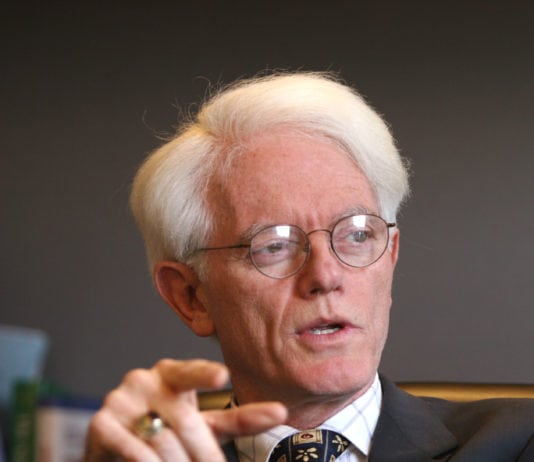
Never invest in any idea you can’t illustrate with a crayon.
Investing is fun, exciting, and dangerous if you don’t do any work.
If you can’t find any companies that you think are attractive, put your money in the bank until you discover some.
If you invest $1,000 in a stock, all you can lose is $1,000, but you stand to gain $10,000 or even $50,000 over time if you’re patient. The average person can concentrate on a few good companies, while the fund manager is forced to diversify. By owning too many stocks, you lose this advantage of concentration. It only takes a handful of big winners to make a lifetime of investing worthwhile.
Develop a disciplined approach to investing that enables us to block out our own distress signals.
The key to making money in stocks is not to get scared out of them.
You’ve got to go into places where other investors, and especially fund managers, fear to treat, or, more to the point, invest.
There’s never been a market timer on it [Forbes Rich list]. If it were truly possible to predict corrections, you’d think somebody would have made billions by doing it.
The very best way to make money in a market is in a small growth company that has been profitable for a couple of years and simply goes on growing.
A company, will rarely go bust in the face of heavy insider buying.
Seth Klarman

A simple rule applies: if you don’t quickly comprehend what a company is doing, then management probably doesn’t either.
Wall Street research is strongly oriented toward buy rather than sell recommendations. There is more business to be done by issuing an optimistic research report than by writing a pessimistic one.
A margin of safety is necessary because valuation is an imprecise art, the future is unpredictable, and investors are human and do make mistakes. It is adherence to the concept of a margin of safety that best distinguishes value investors from all others, who are not as concerned about loss.
Once you adopt a value-investment strategy, any other investment behaviour starts to seem like gambling.
Investors buy securities that appear to offer attractive return for the risk incurred and sell when the return no longer justifies the risk.
In reality, no one knows what the market will do; trying to predict it is a waste of time, and investing based upon that prediction is a speculative undertaking.
Value in relation to price, not price alone, must determine your investment decisions. If you look to Mr Market as a creator of investment opportunities (where price departs from underlying value), you have the makings of a value investor. If you insist on looking to Mr Market for investment guidance however, you are probably best advised to hire someone else to manage your money.
The return per dollar invested declines as total assets increase. The principal reason is that good investment ideas are in short supply.
The avoidance of loss is the surest way to ensure a profitable outcome.
The hard part is discipline, patience and judgement.
Charlie Munger
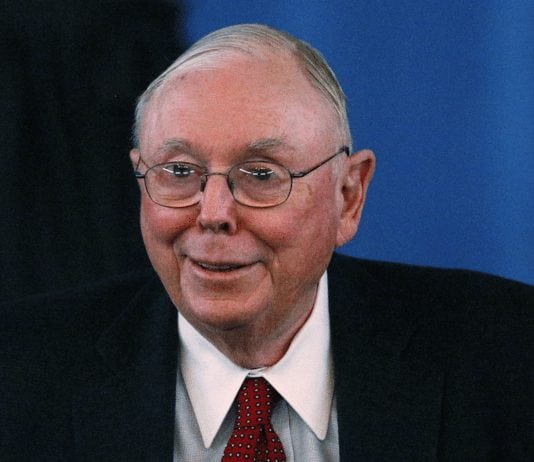
Only in fairy tales are emperors told they are naked.”
Like Warren, I had a considerable passion to get rich, not because I wanted Ferraris – I wanted the independence. I desperately wanted it.
What you have to learn is to fold early when the odds are against you or if you have a big edge, back it heavily because you don’t get a big edge often. Opportunity comes, but it doesn’t come often, so seize it when it does come
People underrate the importance of a few simple big ideas – the chief lesson is that a few big ideas really work.
I don’t think you can get to be a really good investor over a broad range without doing a massive amount of reading. I don’t think any one book will do it for you.
Investors can have 90% of their wealth in a single company, if it is the right company.
In my whole life, I have known no wise people (over a broad subject area) who didn’t read all the time – none, zero. You’d be amazed at how much Warren [Buffett] reads – and how much I read. My children laugh at me. They think I’m a book with a couple of legs sticking out.
Sit on your ass investing. You’re paying less to brokers, you’re listening to less nonsense, and if it works, the tax system gives you an extra one, two, or three percentage points per annum.
A great business at a fair price is superior to a fair business at a great price.
All intelligent investing is value investing – acquiring more than you are paying for. You must value the business in order to value the stock.








![Etoro Review – My Honest Opinion [+TUTORIALS]](https://foxytrades.com/wp-content/uploads/2018/03/Etoro-Review-100x70.jpg)
